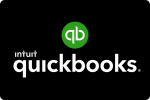 The rise of cloud-based software, which is run on remote servers and typically entails a recurring subscription, has gotten many people to wonder about its potential benefits. What could be better about this system than one in which software is bought once, or at most once every few years? It turns out that there are many differences that can be found between turnkey software in the cloud and on-premise software.
The rise of cloud-based software, which is run on remote servers and typically entails a recurring subscription, has gotten many people to wonder about its potential benefits. What could be better about this system than one in which software is bought once, or at most once every few years? It turns out that there are many differences that can be found between turnkey software in the cloud and on-premise software.
Here are some of the ones that are bringing more and more people to the cloud:
Cloud-Based Software Solves the Problem of Obsolescence
With on-premise software, the base code remains static except for occasional updates. A few updates are typically free, but when a major change is made, developers tend to charge for the new version. Sometimes, users are lucky enough to be offered a relatively-cheaper "update" version, but this is not always the case. The biggest downside is that even updated versions can have significant costs, especially when business or enterprise software is involved. If a licensee wants to avoid these costs, the only option is not to update. Company software then becomes obsolete, and eventually, it gets so far behind that it can't meet modern needs.
Cloud-based software, on the other hand, doesn't result in surprise charges when significant updates are released. Instead, all updates - both large and small - are included in the subscription fee. Not only that, there is often no need to make any special effort to get them. Accounts are automatically moved to the new version in a mostly seamless process.
Security Is Often Better for Cloud-Based Software
While there is no such thing as invincible security, you can often come much closer with software that's based in the cloud. This is because cloud-based software companies have tougher standards. Cloud businesses have to build secure data centres that are independently audited, adhere to standards such as Soc 2 Type II, and are used by hundreds to thousands of tenants.
On-premise software, on the other hand, is often running on systems that aren't as secure as they could be. The application of released patches may be spotty, or if the software has been allowed to go obsolete, completely nonexistent.
This isn't to say that users of cloud-based order management software don't need to take any security precautions. You'll still need to devise secure passwords, along with a good way to keep those passwords safe from unauthorized users. Even so, the job of keeping information secure is much easier when most of the effort is being done on the software company's side.
Turnkey Software is Ready to Use Almost Instantly
On-premise software often takes quite a while to set up. It has to be installed, patched to the very latest version, and finally, configured. Turnkey cloud-based software, on the other hand, needs no installation or patching because it's already running on the software company's side. All you need to do is set up an account and designate the authorized users.
Since installation and initial patching are some of the most time-consuming aspects of getting started with new software, using a turnkey option is a sure time-saver. Even better, there'll be no need to deal with confusing hardware requirements, setting root permissions, and other things that often require a trained tech to properly perform.
With these benefits and more, it's no wonder that people are turning to cloud-based alternatives in ever-greater numbers. The automatic updates, increased security, and nearly-instant setup time make it well worth it.
To learn more about how turnkey order management software in the cloud can help your company, just contact Now Commerce.





